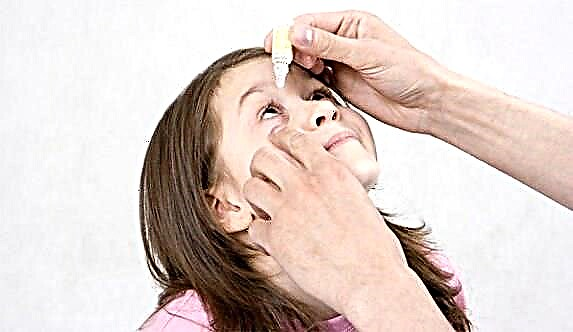Can bananas be on the breastfeeding mom's menu?
The issue of nutrition for a lactating woman is quite controversial these days, even among doctors. The opinions of experts are divided: some believe that the nutrition of a nursing woman should consist of the same foods as during pregnancy, and she should not limit herself in anything, since the child has adapted to this food even in utero, while others - that it is necessary to eat right while breastfeeding and following a diet.
Often, after childbirth in the hospital, it is strongly recommended to eat only diet food and it is forbidden to include many fruits and vegetables in the diet. They justify this by the fact that an unpredictable reaction of the baby's body to the introduced food product may occur.
Old school pediatricians believe that bananas are an exotic fruit and that when they are consumed by a nursing mother, an allergic reaction may occur in a newborn. But is it that exotic? In the modern world, due to its low cost and availability (since they are sold in almost every store and are often used by us), our body has already adapted to it and does not consider it as such.
Can a nursing mom use bananas? Yes, you can (if there are no contraindications, which will be discussed below). If a woman had consumed this fruit during pregnancy and before that, and there were no allergic reactions to it, then it is not worth forbidding it after childbirth, in the absence of evidence. Since it has a huge amount of vitamins and minerals, and also has an antidepressant effect and many other useful properties.

What's good about bananas?
This fruit contains B vitamins (B1, B2, B6), ascorbic acid, nicotinamides (PP vitamins), beta-carotene, and it is also rich in iron, potassium, magnesium, phosphorus, calcium, fructose, glucose, sucrose, pectin, fiber, methionine, tryptophan, lysine. Thanks to this, it is an irreplaceable product during the lactation period.
This fruit has the ability to:
- improve memory, attention, mood;
- reduce irritation of the stomach lining;
- reduce edema (by removing excess fluid from the body);
- maintain blood sugar levels;
- improve the growth of hair, nails and eliminate dry skin;
- to have an antidepressant effect (especially "good" for the prevention of postpartum depression);
- allows you to fight infection faster, thanks to its composition;
- increase hemoglobin levels during breastfeeding.
In the body, tryptophan is converted into serotonin - "the hormone of happiness", thanks to this, mood improves, energy appears and depression disappears.
Possible side effects for a nursing mom
Unfortunately, breastfeeding bananas have not only positive effects, but also negative ones.
The use of this fruit in patients with diabetes mellitus should be done with caution due to the high content of carbohydrates in it, as in severe cases hyperglycemic coma may occur. With hyperacid gastritis, it can cause heartburn. In women who are prone to overweight, bananas contribute to an even greater increase in body weight.
After the introduction of this product into the diet, it is necessary to carefully monitor the state of health of the crumbs, as colic, allergic reactions, and upset stools in a newborn (constipation or diarrhea) may occur. If these symptoms are not present, its further use is allowed.
Allergic reactions

Banana allergies are quite rare at around 1%. This fruit is considered hypoallergenic, but there are exceptions to the rule. The reason for this is: spraying them with chemicals (to enhance their growth and maturation), a decrease in the general resistance of the body due to unfavorable environmental conditions, violation of the rules for the introduction of complementary foods.
An allergic reaction to this fruit can manifest itself as a rash on the face or all over the body. In rare cases, it tends to occur in the form of anaphylactic shock, Quincke's edema, laryngeal edema, seizures, loss of consciousness, hyperthermia.
If, after introducing a banana into the diet, a child has a rash on his body, a cough, he began to cry sharply, or he has other manifestations of allergies - call an ambulance team immediately!
Effects on the digestive tract

It should be noted that a banana has a different effect on each of us. And it is this factor that must be taken into account when introducing it as a complementary food. If the mother has an intolerance to this product, then you should not torture yourself or the child.
It is believed that this fruit is able to regulate stool. If a baby or a nursing mother has diarrhea, it strengthens, and if constipation weakens.
Can bananas when breastfeeding be bad for a baby?
When consumed in the evening and at night, especially in unripe fruits, diarrhea may occur, since they have a laxative effect (especially in infants). In the event that a mother or baby eats this fruit in an overripe state, then most often it will cause constipation.
If a woman eats a banana while breastfeeding, then most often it contributes to constipation in the baby.
It is forbidden to use unripe bananas for both a nursing mother and a baby due to the high content of starch in them, which contributes to increased gas formation, colic. After the fruit is ripe, the starch turns into glucose and does not cause this effect.
How long after childbirth can you eat bananas and how to properly introduce them into the diet?
Their introduction into the menu of a breastfeeding mother in the first month is not recommended. Since bananas with HS can contribute to increased gas production, fermentation and colic in the crumbs, due to the immaturity of its digestive system, an allergic reaction may also occur. Therefore, it is recommended to introduce this product into the diet no earlier than 6 - 7 weeks after childbirth.
There are many opinions among physicians on the timing of their introduction, some count immediately after childbirth, while others - after at least a month.
The introduction of this product into the diet should be as follows:
- at the age of crumbs at least 6 - 7 weeks, a nursing woman (in the absence of contraindications) can try one fourth of the fruit;
- in the absence of allergy symptoms and digestive disorders in the crumbs, within a week, you can increase the dosage to half of the fruit;
- if there is no further reaction from the mother and the baby, it is allowed to eat one piece per day.
Tips for choosing fruit in the store and in the market
When choosing bananas, you must first of all pay attention to their appearance. It is necessary that they are ripe (yellow and hard) and not spoiled (have no black dots and dents), and they should not stick to your hands (this means that they are not treated with chemicals).
Several delicious banana dishes
Light cocktail (2 servings)
The ingredients are as follows.
- Milk - 1 glass.
- Bananas - 1 piece.
Preparation: Mix all ingredients thoroughly in a blender for a few minutes.
Banana dessert
The ingredients are as follows.
- Cottage cheese - 1 pack.
- Kefir - 100 ml.
- Banana - 1/2 piece.
Preparation: beat all ingredients in a blender for 1 - 2 minutes.

Conclusion
This fruit is hypoallergenic and has a lot of useful properties for both mother and child, but there are "exceptions to the rule", then the use of bananas is not recommended. Therefore, it is necessary to introduce it into the diet of a nursing woman gradually, observing whether an allergic reaction or digestive problems have appeared in the baby.
If the nursing woman has contraindications for its use or if there have been side reactions before, you should not experiment, since instead of benefit, you can harm your baby.
Take care of yourself and your children! Follow your doctor's recommendations carefully! Be healthy!



